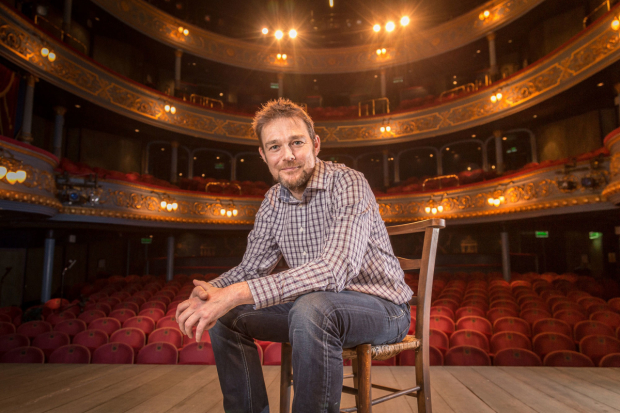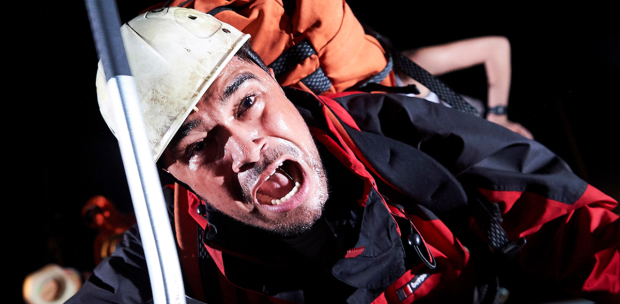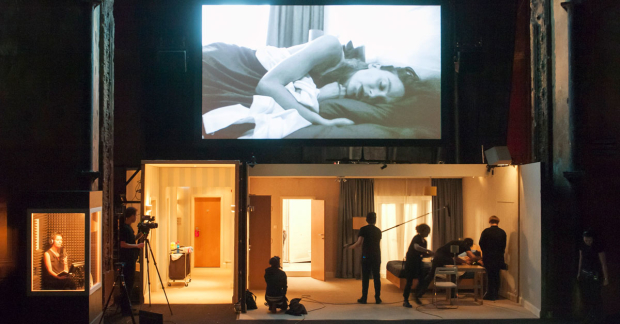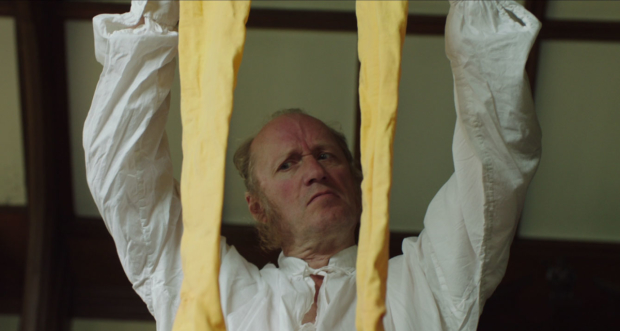Review: Twelfth Night (Lyceum, Edinburgh)
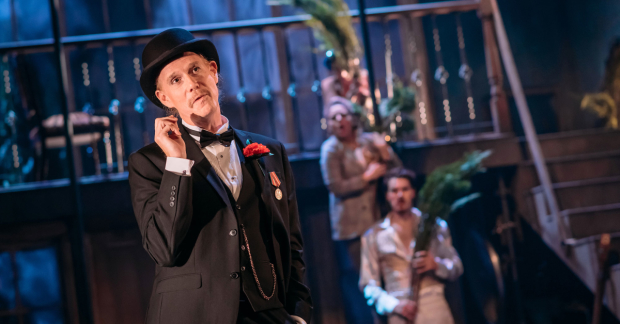
© Mihaela Bodlovic
For the Elizabethans, Twelfth Night, the last day of the Christmas season, was one of the most festive days of the year, when hierarchies were overthrown, expectations were usurped and uproarious fun ensued. So when Shakespeare chose that as the title for his play, he was tapping into that zany spirit of chaos, even though the action famously has nothing to do with the time of year. Girls dress as boys, servants get one over on their masters, and nobody seems to be in love with the right person.
You get an impression of that anarchy in Ana Inés Jabares-Pita's sets for this Lyceum production, the first of the new season. Holier than a Swiss cheese, characters appear and disappear through all sorts of unusual openings, using them to creep up on each other and overhear conversations, sometimes jazzing up their entrances with a fireman's pole. Director Wils Wilson also taps into that spirit of uproar by placing the action in the world of Andy Warhol's 1960s, with brightly coloured costumes, flamboyant gestures and pastiche music that evokes the Swinging Sixties.
That carries benefits and losses, though. The music, for one, was well written and nimbly performed, but it took up too much space in the production, filling up the time and making several scenes drag. That also exacerbated some pacing issues in the major plot involving Viola, Orsino and Olivia. These scenes bump along cumbersomely, despite versatile acting from Jade Ogugua's Viola and Lisa Dwyer Hogg's Olivia.
Furthermore the gender mix of casting didn't work. Shakespeare's text already plays deliciously with notions of gender, with Viola spending most of the play as a boy, a part that would have been played by a boy in Shakespeare's time anyway. It doesn't need more layers to be added on, as happens here. Orsino, Lady Tobi and Sebastian are all played by women, and the production doesn't seem to have made its mind up whether the casting is gender-blind or playing with ideas of sexuality. Lady Tobi takes up with Maria in a clearly lesbian relationship at the show's end, but is Antonio having a gay affair with Sebastian or does he think she's a woman all along? Too many plates are left spinning so that the narrative becomes cluttered, and it doesn't help that Viola and Sebastian don't look even slightly similar, thus driving a bus through the central device of the plot's resolution. Here disbelief isn't so much suspended as skewered.
I enjoyed the subplot involving Lady Tobi and Sir Andrew Aguecheek much more. Here the scenes were light and fleet-footed, helped by some great comic turns from Dawn Sievewright's Tobi and Guy Hughes' Aguecheek, and crowned by a wonderfully mercurial Feste in Dylan Read, the pick of the bunch. I also really enjoyed Christopher Green's Malvolio, milking the character's comic pomposity but also finding humanity in his suffering, and it's to the production's credit that it doesn't shy away from the darkness at the heart of Malvolio's treatment.
Those scenes, at least, are jolly entertaining, and they're the main reason for seeing this show. Ultimately, though, only half of this Twelfth Night works, and it's the directorial decisions that hobble the rest.



